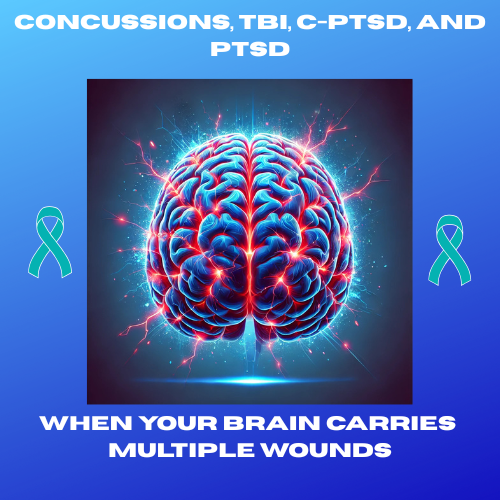Digital Warfare: The New Front in Combat.
THE BATTLE FOR FUTURE GENERATIONS
I have worked with parents who are struggling to set boundaries with their children regarding social media use, addressing the consequences of disobedience and associated behavioral issues.
A Modern Tale of Digital Trauma
The glow of a screen illuminates the face of a child sitting in their bedroom, long after bedtime. What begins as an innocent interaction connecting with friends, watching videos, and scrolling for entertainment gradually becomes a silent force shaping their identity, emotions, and worldview.
The child starts to compare, question, and doubt their worth. They experience anxiety over likes, fear of missing out on trends, and find themselves emotionally exhausted by a curated version of life they can never live up to.
This is the modern trauma of the digital age, a battlefield where there are no bombs or bullets, but constant mental assaults. Children are quietly breaking under the weight of online expectations, unfiltered content, and relentless digital noise.
The New Face of Childhood Trauma: Digital PTSD
Post-Traumatic Stress Disorder (PTSD) is evolving. Previously associated with physical or life-threatening trauma, it now stems from psychological overstimulation and manipulation.
Digital PTSD emerges when children are exposed to chronic online stressors, cyberbullying, rejection, exposure to violence, and the internalization of toxic comparisons.
Digital trauma is persistent and difficult to escape. Unlike physical trauma, which may occur in isolated incidents, this trauma is chronic, often experienced daily, and follows children into every corner of their lives.
Triggers of Digital PTSD
Digital triggers subtly creep into a child’s psyche and take root:
Public Rejection and Criticism: Negative comments and online neglect can profoundly damage a child's fragile identity.
Apologizing for Acceptance: Children often learn to over-apologize to conform and please.
Oversharing: In their quest for connection or relevance, many children share more than they should, exposing themselves to ridicule or manipulation.
Toxic Comparison: When real life fails to match the edited, filtered images online, children feel inadequate and unworthy.
Unfiltered Content: Exposure to violent, depressing, or explicit content, often algorithmically promoted, can cause psychological disturbance and despair.
Weaponizing Digital Platforms
Media platforms aren’t neutral. They are designed to captivate attention and drive emotional engagement, often at the expense of mental health:
Algorithmic Triggers: Content that provokes outrage, fear, or sadness is prioritized to increase screen time.
Social Reward Loops: Likes and shares become a measure of self-worth, fueling dopamine addiction.
Platforms deliberately cultivate the fear of missing out (FOMO) as a strategy, pressuring users to participate constantly.
This is psychological warfare wrapped in entertainment. And children, with underdeveloped coping mechanisms, are the most vulnerable targets.
5-Step Recovery Manifesto for Youth
A structured approach is key to helping children reclaim emotional health:
1. Awareness and Education
Teach children about how digital platforms influence emotions.
Discuss the difference between real life and social media illusions.
Help them spot manipulative content.
“The prudent see danger and take refuge, but the simple keep going and pay the penalty.” (Proverbs 22:3)
2. Digital Detox and Boundaries
Please consider setting aside specific times for screen-free activities and establishing areas designated as tech-free zones.
Replace screen time with creative or outdoor activities.
“Do not conform to the pattern of this world but be transformed by the renewing of your mind.” (Romans 12:2)
3. Build Inner Strength
Reinforce that value is not measured by digital feedback.
Cultivate resilience and teach emotional coping strategies.
“I praise you because I am fearfully and wonderfully made.” (Psalm 139:14)
4. Create Safe Support Systems
Encourage open communication with adults and peers.
Seek professional counseling if symptoms of anxiety or depression arise.
“Carry each other’s burdens.” (Galatians 6:2)
5. Encourage Mindfulness and Faith
Practice breathing exercises, journaling, and reflective prayer.
Reconnect with spiritual identity and rest.
“Come to me, all you who are weary and burdened, and I will give you rest.” (Matthew 11:28)
5-Step Recovery Manifesto for Parents
To support and protect children, parents must also engage in intentional recovery practices:
1. Model Healthy Digital Habits
Children mirror adult behaviors. Reduce your own screen time and engage in face-to-face interactions.
Share openly about the challenges of technology and how you manage it.
2. Establish Clear and Compassionate Boundaries
Set limits on screen usage that are enforced with empathy, not punishment.
Clarify the reasons behind the boundaries to foster mutual respect.
3. Create a Culture of Conversation
Make the home a safe space for children to discuss their online experiences.
Listen without judgment. Ask reflective questions, not interrogations.
4. Educate and Empower
Discuss social media literacy, how to spot fake news, filter manipulation, and unhealthy trends.
Encourage critical thinking over passive scrolling.
5. Pray and Protect
Cover your children in prayer and wisdom.
Involve them in spiritual practices that reinforce their identity and purpose, beyond the digital approval.
“The Lord will fight for you; you need only to be still.” (Exodus 14:14)
Conclusion: Guarding Their Minds and Hearts
Children are living in a new era of mental and emotional warfare. As parents, educators, and caregivers, we must rise as protectors, not only from physical threats but from invisible digital enemies.
Trauma from social media is real, but so is the recovery process. Through awareness, boundaries, support, and spiritual strength, we can guide this generation to stand firm in truth, love, and resilience.
“Train up a child in the way he should go, and when he is old, he will not depart from it.” (Proverbs 22:6)
2025© www.soundthetrumpet.org









